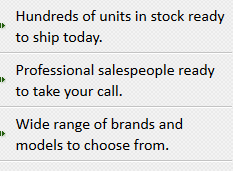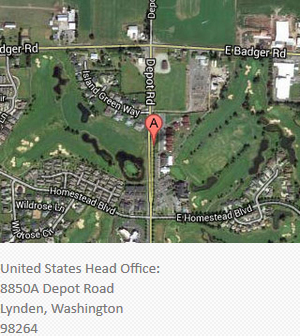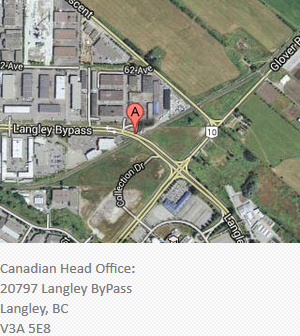About Global Lift Used Forklifts Elk Grove
Global Lift Elk Grove - Below are the classes of forklifts that describe the use and fuel choice of every type of forklift. Certification is really needed for every class of forklift which the operator would be using.
Class 1
These forklifts come with either pneumatic or cushion tires. Pneumatic tires are recommended for outdoor use in dry conditions. The models with cushion tires are designed for indoor surfaces that are smooth. These are electrically powered vehicles that utilize industrial batteries, that make them suitable within closed locations where air quality is an issue. Travel and hoist functions are controlled by transistor motor controllers. These are versatile units commonly utilized everywhere from storage facility to the loading dock.
Class 2
This particular forklift is recommended for environments where narrow aisles need to be negotiated. They are effective at maximizing the use of storage space. Their unique design makes them ideal for small spaces and where speed is required.
Class 3
These are hand-controlled and battery-powered models. Using a steering tiller, the operator could control the lift while standing in front of the truck. The tiller has controls mounted on top and is moved laterally to be able to steer the vehicle. The units that have smaller capacity use industrial batteries.
Forklifts, also called industrial-powered lift trucks, allow operators to transport and carry heavy or bulky objects efficiently and easily. They are an essential device for transporting cargo and merchandise through the logistical supply chain. Forklifts are either gas- or diesel-powered or electrically-powered. Gas-powered models run on diesel, liquid propane gas or gasoline. Training in the proper and safe use of forklifts, like proper fueling methods, is vital for all operators of forklifts.
There are a wide range of forklifts, each designed for different uses and environments. Forklift types include side loaders, narrow aisle, sit-down units and reach trucks. Your selection of a forklift depends on the particular tasks that will be performed\done.
Each year, around 100 individuals are killed in accidents that are related to forklifts in the United States. Many more people receive serious injuries in forklift mishaps. Proper safety training is required in order to reduce the possibility of accident.
Forklifts are powered either by diesel, battery, propane or gasoline. Every different type is suited to a different workplace setting.
Forklifts come with metal forks that are utilized to lift heavy supplies. Possible attachments comprise hoists, buckets and clamps.
Forklifts must maneuver within warehouse settings which have very narrow aisles and a tight turning radius. There are particular types of forklift made for this particular kind of setting. Narrow aisle forklifts allow a warehouse or distribution center to dedicate a lot more space to goods.
Forklift certification courses really help to be able to make sure that businesses making use of forklifts, comply with the regional and local rules. The operators of the forklift must undergo forklift certification before operating this kind of machine. Training is still helpful and effective for those looking for distributing and industrial work in the places which certification is not needed by law. People who are certified are usually selected over other applicants due to this training. Certified forklift drivers are often paid higher than people who are not licensed. For businesses, having properly trained forklift operators means better productivity, less workplace incidents and less product damage during unloading and loading. When companies adhere to governmental rules by providing training to their employees, they can achieve higher ratings on their safety inspections, potentially reducing insurance costs.
Formal forklift training is recommended to help employees and supervisors get licensing. It would be easier for those with a forklift certification to look for warehouse jobs because the license will demonstrate to potential employers that the applying has particular required skills. A forklift license is suggested because o the benefits to both the employee and the company. A skilled operator saves resources because of less accidents, that means savings on costs connected with loss of time or hospitalization. A licensed forklift operator could be depended upon to work more efficiently and effectively than some one who is not trained.
A formal forklift certification training program can vary in length that depends upon the type of forklift utilized in the instruction, class size, and experience and aptitude level of the ones training. Certification often requires the trainee to pass a written test and practical exam before a license could be issued. Upon successful completion of a formal training program, graduates will be certified to get work in various businesses.

Contact Info

Questions or Comments





